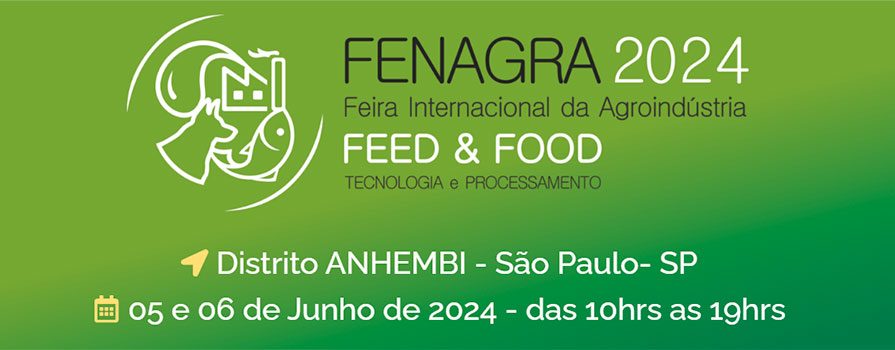The moment is unusual and unprecedented. The oleochemical industry is using very little of its installed capacity. There is a lack of raw materials to meet local demand, which increases prices and makes the production of fatty acids more expensive. The problem has been going on for a few years, but now it is on the verge of collapse. Inflated, the prices of oils and fats end up causing a rebound effect throughout the chain. Regardless of the type of oil or fat, the entire market is linked to soy. Therefore, the scarcity of raw materials forced the country to import the oilseed from neighbors, such as Argentina and Paraguay. Brazil even took the world lead in soybean production, leaving the United States behind. However, the situation is still chaotic for those who depend on oilseeds.
According to the Brazilian Vegetable Oil Association (Abiove), the country should end 2020 recording the lowest volume in the last two decades with less than 670 thousand tons in stock. “There was a retraction in local supply and, consequently, an explosion in the price of soybeans and their derivatives”, says engineer André Rohr, director of Miracema-Nuodex.
According to Felipe Camargo, manager of Oleochemical Products, from Aboissa Commodity Brokers, demand is on the rise and the scarcity of raw materials means that the oleochemical market operates with idleness between 70% and 80%. Losses come from all sides. Aboissa is faced with requests from companies interested in purchasing tallow and soy fatty acids, but is unable to meet them, and is forced to select the most strategic customer. “The damage is immense. We are working in drops,” he emphasizes.
The encouragement is that the prognosis is positive. Camargo envisages that in the next soybean harvest, for February and March 2021, the situation will be close to normal, but without significant drops in prices. “The challenge is to survive this year,” he says. Once the crisis is over, the market should grow, especially because it has great potential. he cites, for example, the trend of using linseed fatty acid to manufacture some special resins. “There are already some projects underway”, he announces.
Aboissa is today one of the largest and most respected commodity brokers in Latin America. With vast knowledge of the global production chain, it has specialized brokers focused on each product family.
For Camargo, 2020 has been off the charts. In the last twelve months, Brazil exported 93 million tons of soybeans, which caused a series of problems in sectors such as biodiesel, animal feed, food and paints, among others. In the first half of the year, Brazilian soybean exports surpassed the 60 million ton mark. “Chinese appetite, combined with a favorable exchange rate for exports, generated an internal shortage of soybeans”, he highlights.
He explains that the oilseed rose in price by 80% in the last twelve months, and the price per bag at the port reached the historical value of R$ 140. By way of comparison, it is worth mentioning that in the same period last year, the bag R$ 88 was purchased.
In Brazil, soy sets the price of other commodities, as it is the country's main oilseed. Around 70% of the biofuel manufactured on the national market comes from soybean oil. The remainder is divided between beef tallow (20%) and other oils and fats. As Rohr points out, the inclusion of fatty acid methyl ester as a biodegradable molecule in diesel oil (biodiesel) unbalanced the oleochemical market, increasing demand without due compensation in supply.
The situation has reached the point of forcing the government to review the mandatory mixture of biodiesel in diesel oil. The Collegiate Board of ANP (National Agency for Petroleum, Natural Gas and Biofuels), with the authorization of the Ministry of Mines and Energy (MME), approved the reduction in the percentage of the current 12% to 10% for the two-month period (September/October). Antônio Carlos Coral, supply manager at Miracema-Nuodex, recalls that there is a project that determines that this proportion will increase every two years, reaching 23% by 2030.

Sector – The world's largest capacity for fatty acids is concentrated in Asia, mainly in Malaysia and Indonesia (large palm producers), which have become export bases for these inputs and derivatives. According to Vitor Yokomi Fornari, Mercosul product manager at Oxiteno, in addition to these players, China, which imports various oils and fats for the production of fatty acids, are relevant producers worldwide, but mainly for domestic consumption. “The large capacities and production of fatty acids are traditionally focused on the Southeast Asian region and the United States”, emphasizes Fornari.
According to the director of Almad, Admir Lovato, all growth in the national domestic market is concentrated in primary products; on the basis of oleochemicals, biodiesel stands out, as it has a strong agricultural production that supports the entire chain; The exception is the protein segment that generates exports of consumer products. According to him, higher technology products are imported at more attractive costs. “For this reason, little is invested in large projects,” says Lovato.
For him, another obstacle to the expansion of the oleochemical industry concerns the cost in Brazil. “In addition to the direct costs of taxes plus the indirect costs due to their tangles, there is a lot of work and administrative and legal burdens, hindering the country’s development”, he states.
Brazil – It would be expected that Brazil would have one of the most developed and competitive oleochemical chains. After all, the country is an important producer and exporter of oilseeds and tallow. But, not even in relation to the derivatives of these fatty chains, the country reaches the level that would live up to its potential.
A problem that hinders the expansion of the national oleochemical industry is the deficit in the palm oil trade balance. The country produces 520 thousand tons of palm oil/year and imports 600 thousand tons/year. “Brazil depends on imports, so oleochemical companies have no interest in its use”, comments Camargo.
Palm oil has unique characteristics. It is a product rich in some essential fatty acids, such as C16 and C18:1, for example, in addition to the seed itself, from which palm kernel oil is extracted, with a different and complementary composition to increase the supply of fatty acids after fractionation.
Although it is a common source of oleic, linoleic and linolenic acids, in addition to palmitic acids, soybeans have a low concentration of stearic acid and do not contain a variety of other acids, which need to be obtained from other plants. For Camargo, palm oil and palm kernel oil are excellent for producing short and medium chain fatty acids, mainly.
Brazil is the leader in South America in the production of oleochemicals from beef tallow. According to Camargo, over the years, the input went from being considered “the ugly duckling of the industry” to becoming “the apple of the eye”. The hygiene and cleaning industry takes care of the product. Around here, around 90% in the soap/soap segment uses tallow. According to Coral, there are basically two types of tallow, with refrigerator tallow (used in biodiesel) being the best quality, and grease store tallow.
Production – Oxiteno is the largest buyer of palm kernel oil in the region for processing into alcohols and fatty acids. The raw material is mostly purchased from Malaysia and Indonesia. At the Camaçari – BA unit, the company splits PKO (palm kernel oil), produces fatty acids with carbon chains 8 to 18, with only a C8-C10 fraction being sold to the market, under the brand Ultracid 810. remaining acid chain generated (C12 to C18) is used as a chemical intermediate for the production of natural alcohols, Alkonat 1214 (fraction C12-14), Alkonat 1618 (fraction C16-18) and the pure cuts, Alkonat 1698 (C16) and Alkonat 1898 (C18). The company operates directly in the market for natural alcohols and their ethoxylated and/or sulfated derivatives.
Fornari emphasizes that the company has a diversified and versatile portfolio and offers high performance in a large number of applications. some highlights are its Alkonat and Alkopon products. “Their differences are the fact that they are derived from natural, certified, competitive hydrophobes 100% and with a high capacity to respond to market demands”, he says.
The company launched the Oxismooth line. It contains 100% emollient esters derived from raw materials of renewable origin, which according to the manufacturer, combine functionality, sustainability and excellent sensory properties, highly recommended for hand sanitizing lotion formulations, with an excellent sensory profile. In fact, they also serve as green substitutes for silicones in skin care, sun protection and hair care applications.
The oleochemical unit supplies the company itself with the fatty acids necessary for the production of fatty alcohols, which are in great demand for the manufacture of cleaning products, solvents and cosmetics. “Oxiteno’s oleochemical integration is fundamental to guaranteeing customers security of supply and sustainability that a demanding and dynamic market requires, especially at the moment we are going through.” says Fornari.
Almar's product line values diversity. Quite extensive, the portfolio particularly serves the oleochemical and hygiene and cleaning segments, with emphasis on the growing participation in the mining and nutrition sectors. In fact, this is also why the company has increased its sales. “The company's revenue grew by 12% in 2019, with better logistics in the distribution and formulation of products according to customer needs”, adds Lovato.
According to him, the company invested a lot in research and development to record by-products converted into applications such as soil conditioners and fertigation (fertilization technique that uses irrigation to deliver nutrients to plantations). In time, Almad recently received ISO 9001 certification. “We are just a few steps away from GMP+”, he is proud, referring to the Good Manufacturing Practice certificate.
Green – According to Fornari, from Oxiteno, the oleochemical market is increasingly dynamic and interested in partners who have high-level sustainability certifications and are prepared to deal with customizations of their products. Among the demands that have emerged in recent years, he highlights products free from modified organisms (GMO free) and derived from certified palm plantations (RSPO). “We are improving our methodology for evaluating the sustainability of individual products,” he says. Namely: the Camaçari plant has the advantage of being integrated in the production of its fatty acids and alcohols, guaranteeing products of natural origin, with the possibility of RSPO certification.
“The world as a whole is migrating towards green”, comments Coral, from Miracema-Nuodex. However, he notes that substitution will only take place effectively if the products have prices similar to synthetic ones or due to the imposition of laws, as was the case with the banning of products containing lead and mercury.
Ricardo Lougon Ávila, commercial director at Irgovel, brings data from the Brazilian Institute of Public Opinion and Statistics (Ibope), according to which 8% of the Brazilian population behave as vegetarians and/or vegans. “This opens up a very lucrative opportunity for launching products containing 'vegetable' concepts and appeals, given that the followers of this philosophy of life are mostly in a higher social stratum, therefore they are not concerned with prices, but rather with consuming and practice the concept”, says Ávila.
The products of Personal Care dialogue directly with the natural concept. Therefore, it is no coincidence that among the main markets served with fatty acids, this category has stood out. According to Marianna Cyrillo, marketing manager at Beraca, there is an intense consumer movement in favor of products that have a sustainable appeal in addition to the idea of well-being and personal care. “Of all the markets, Personal Care bravely faced the pandemic. The demand for self-care products has increased significantly,” he says.
About two years ago, the trend towards ingredients of natural origin took hold. Marianna says that consumers yearn for formulations that bring benefits to themselves and society as a whole, often not caring about the cost, when they identify value there.
In line with this trend, Beraca brings two launches. Beracare CBA (Cannabinoid Active System) is one of them. It is a complex of Amazonian oils with a high content of terpenes and unsaturated fatty acids – especially linoleic acid. This important component is related to increasing skin permeability, improving the activity of the ingredient.
According to the manufacturer, the product helps to mitigate the effects of premature aging related to inflammatory stress, with the ability to support the skin's re-epithelialization and healing process. Marianna explains that CBA is a safe alternative to CBD (Cannabidiol), with versatile uses and applications in different cosmetic products, such as tonics, lotions, creams and soaps.
The company also presents as a novelty a technological and multifunctional ingredient that combines care for nature, the search for natural ingredients and the concern for minimizing the signs of aging: the sustainable Proaging Açaí Extract. “It is obtained through a unique and exclusive process”, comments Marianna. The extract is produced from fruit from the Amazon region and harvested by local extractive communities.
It is worth mentioning that Beraca açaí is an ingredient Zero Waste (does not generate waste). In other words, there is full use of the species, from a single raw material, all its parts are applied in different cosmetics – extract, oil and exfoliant.
Açaí oil is a cosmetic active ingredient whose structure is mainly composed of anthocyanins, phytosteroids and essential fatty acids (EFA). The fatty acid profile of açaí oil qualifies it as a special edible oil, mainly due to the presence of linoleic acid and oleic acid, in addition to predominantly presenting monounsaturated fatty acids and polyunsaturated fatty acids in its composition.
Beraca supplies the market with sustainable alternatives to soy and palm oil, for example. In fact, the company has in its DNA the manufacture and supply of natural ingredients from Brazilian biodiversity in a sustainable, ethical and traceable 100% way.
Sustainability and biodegradability guide Miracema-Nuodex's new developments. The company presented to the rubber market a new line of process additives whose main focus is the replacement of petrochemical raw materials with materials based on natural fatty acids. “The goal was to make our process additives more biodegradable and sustainable,” says Rohr.
He also announces that the company is finalizing the development of a complete line of natural fatty acid esters and amides for the lubricant industry. The launch is scheduled for early next year.
Miracema-Nuodex has an installed capacity of one thousand tons/month of fatty acids, with an average occupancy rate between 45% and 50%, with around 80% of current production intended for its own consumption. The company has been operating in the market since 1954, producing chemical specialties for a wide range of applications.
Daniela Nunes Teixeira, Sales and Industrial Processes Manager at Química Anastácio, says that currently, due to the greater demand for products of natural origin, such as fatty acids, they have started to replace some synthetic raw materials that are part of the formulation of personal hygiene and cosmetics. “The ecological appeal has restored charm to products obtained from raw materials of natural and renewable origin, even though they require more complex processes and suffer from seasonality and crop failures in agricultural products, he says.
She warns that the company works in partnership with the world's leading manufacturers of fatty acids and vegetable oils. “With extensive knowledge across the entire oleochemical chain, we operate both in distribution and in our own production and in partnership with third parties”, he states. Química Anastácio obtained ISO recertifications and recently received the sustainability seal throughout the supply chain from palm. It is worth remembering that the large global oleochemical companies that operate with vegetables have certifications that guarantee that the palm oil used in the production of fatty acids are of sustainable legal origin.
The company has been operating since its founding, 79 years ago, in the fatty acids segment. Among its main customers are the detergent, soap, cosmetics, medicine, food, plastics and chemical industries, as well as manufacturers of alkyd resins for paints. Other consumers of this raw material are in the special additives segments for greases and lubricants. “We work with the main products that make up the fatty acid chain; They are: stearic acid, oleic acid, soy, coconut and castor fatty acids”, comments Daniela.
Rice – The Brazilian market for distilled rice fatty acid is emerging as one of those with the greatest potential for growth. Leader in the production of distilled fatty acid from rice in Latin America, Irgovel currently produces around 700 t/year, however, according to its director, it has great potential to increase this volume. It is worth mentioning that all of the company's production is destined for the domestic market. “Currently there is no space for export”, he explains.
The production pace of this industry is limited by the seasonal supply of raw material considered ideal for the production of distilled fatty acid from rice, in this case, fatty rice bran with high acidity. Ávila states that one way to meet a greater demand would be to opt for the production of distilled rice fatty acid from low-acid rice oil. However, the value of the final product would be much higher. “I believe that consumers would not support an increase beyond the current one, which is already a historical record compared to previous periods”, he says.
Good news is that the government has signaled the momentary withdrawal of the Common External Tariff (TEC) for the import of paddy rice and also processed rice, in an attempt to curb the rise in prices in the rice complex and, consequently, it may, in some way, affect rice derivatives.
This market segment, by tradition, has hygiene and cleaning segments as its main consumers. However, Ávila diagnosed a new demand: that of lubricant manufacturers. According to him, this movement has to do with the technical quality and performance of the fatty acid distilled from rice, which are superior compared to other fatty acids.













